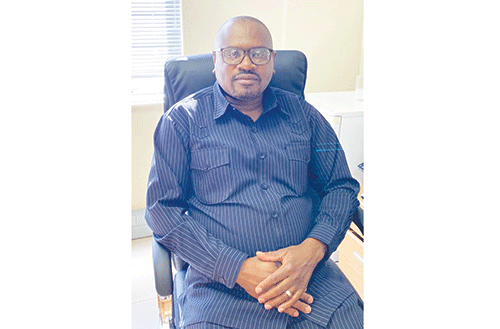ONGWEDIVA – A total of 2 061 malaria cases were recorded at various hospitals in the northern regions from January 2023 to January 2024.
During that period, 13 fatalities from the disease were also reported.
The Ministry of Health and Social Services’ (MoHSS) director in Oshikoto region Josua Nghipangelwa said Oshikoto recorded 340 malaria cases, with three deaths, of which one was at Omuthiya and two at Tsumeb.
He emphasised that Namibia’s malaria burden is consistently high in the north-eastern regions bordering Angola and Zambia, especially Zambezi, Kavango East, Kavango West and Ohangwena.
Malaria is a life-threatening disease spread to humans by some species of mosquitoes. It is mostly found in tropical countries, and it is preventable as well as curable.
Malaria may cause anaemia and jaundice, yellow colouring of the skin and eyes, because of the loss of red blood cells.
Ohangwena region recorded 1 339 malaria cases, with four deaths.
Of these cases 676 were recorded at Engela, 430 at Eenhana and 233 for Okongo.
Omusati region recorded 350 malaria cases with four deaths, of which 159 cases were local while 191 were non-local.
Two deaths were recorded at Outapi Hospital, one non-local death at Oshikuku, and one non-local death at the Okahao District Hospital.
Meanwhile, the Oshakati Intermediate Hospital’s medical superintendent Dr Ruben Kanime said from 1 November 2023 to date, they had recorded 32 cases of malaria, and two deaths from the disease.
He added that this is malaria season, and during the rainy season, there is a higher rate of malaria transmission.
“Therefore, I am urging the community to seek early treatment at their nearest clinics, make use of mosquito nets for those who have, use repelling oil and allow people to spray their houses for those who will be lucky to be visited,” he urged.
He highlighted some of the challenges faced by the region hindering activities to prevent the spread of malaria, especially indoor residual spraying (IRS) programmes, and the refusal of IRS by some community members and other precautionary measures, as well as patients reporting late to health facilities.
“We know that IRS is the primary vector control intervention in Namibia, and the spraying programme was not fully conducted in the region due to insufficient insecticide,” he added.
Kanime said when the MoHSS commences the spraying programme, community members are urged to cooperate with health officials or spray operators, and to allow their houses to be sprayed.
Approached for comment, the public relations officer in MoHSS Walters Kamaya said they are in the process of procuring insecticides for the regions, especially Omusati and Oshikoto.
“On the issue of transport, the ministry is trying to explore the possibility of renting vehicles from community members to be used by spray operators, especially for Omuthiya,” he added.


